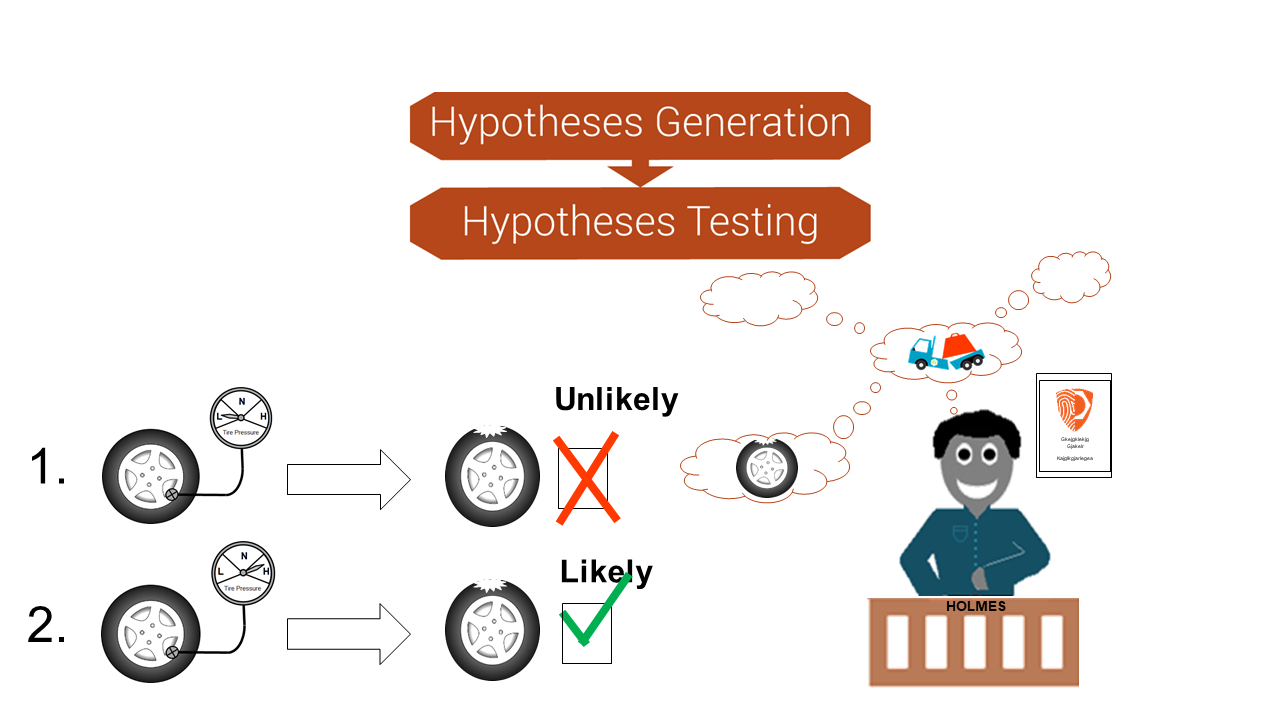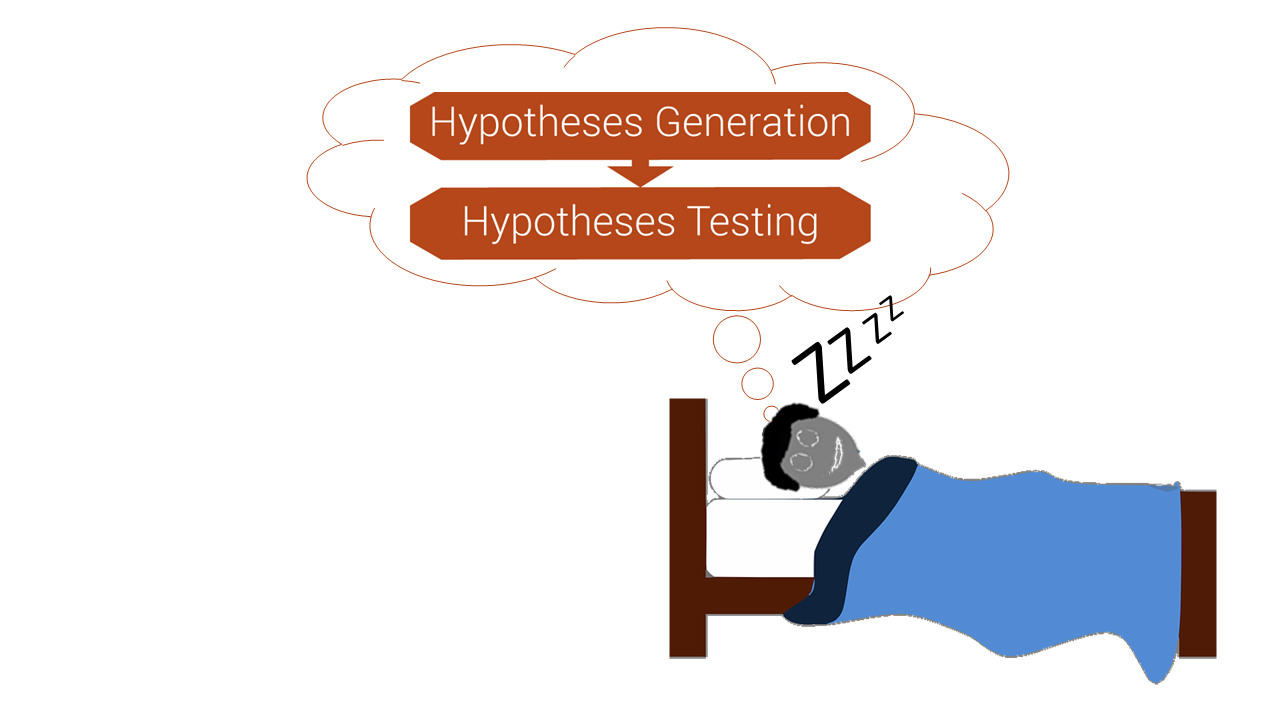Step 3: Hypotheses generation and testing
Course subject(s)
2. The Forensic Engineering Investigation
Now that you have finished the data collection step, it is time to go to Hypotheses generation. You are sitting behind your desk and thinking about what is already known. What could have happened? Can we think of hypotheses that can explain why the truck failed? You decide to make a distinction in hypotheses with respect to the failure mode and hypotheses with respect to the sequence of events.
Let’s have a look at the truck tires which failed. Two tires were deflated and damaged, what could have caused this? A truck tire can fail in different ways but let us assume that during the data collection step it was determined that the failure was either caused by a too high or too low tire pressure. We now have two hypotheses:
1. The tire failure occurred because the pressure was too low.
2. The tire failure occurred because the pressure was too high.

Let’s take a closer look at the first hypothesis, which says that the tire failure occurred because the pressure was too low. The failure corresponded to what was observed during the data collection. However, truck driver Tiny checked the tires before the cargo was loaded onto the truck and said that the tire pressure was normal. As a result, we can cross out the too low-pressure hypothesis.
Now let’s focus on the too high-pressure hypothesis. As said before, Tiny checked the tires and the pressure was normal. However, this was before the cargo was loaded onto the truck. Your collegae knows that the internal pressure of the tires can be raised when more load is put on the tires if the tire volume is not changed. Therefore the failure of the tires due to too high pressure is more likely. The problem is that you don’t have supportive evidence to substantiate this further. You call it a day and go back home for dinner and sleep. You will start fresh in the morning.

Can you think of another hypothesis for the cause of failure of the tire while Holmes is asleep?

Forensic Engineering: Learning from failures by TU Delft OpenCourseWare is licensed under a Creative Commons Attribution-NonCommercial-ShareAlike 4.0 International License.
Based on a work at https://ocw.tudelft.nl/courses/forensic-enginee…earning-failures/.



